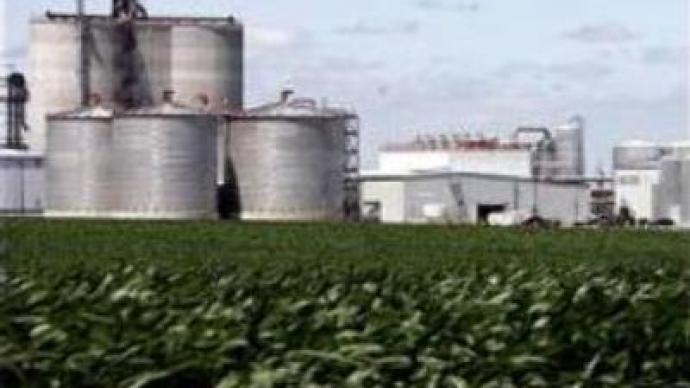Bio-fuel in Russia: impossible at present?

Crop prices are climbing due to the increasing worldwide demand for bio-fuel. But participants of a recent conference on bio-ethanol in Moscow think Russia is hardly benefiting, as it's impossible to sell bio-fuel in Russia now.
Europe wants bio-fuels to make up 10% of total fuel consumption by 2020 to lower its dependency on traditional energy suppliers, namely Russia. In turn, Russia must find its own role in the rush for alternative energy.Russia’s Federation Council this week has proposed giving tax breaks to bio-fuel producers in Russia, a move that experts say would benefit Russia’s economy. But when it comes to renewable fuels, Russia is far behind the United States and Western Europe.“It is impossible to sell bio-fuel in Russia at the moment,” Andrey Sredny, “Vipoil” Head of Investments, thinks. “There are no laws that define how this product should be sold. Excise taxes on ethanol are prohibitively high. But what is more important, major oil companies are resisting the idea of selling bio-fuel within Russia. There has to be a political will to change this predicament”.The will seems to be there, as Russian President Vladimir Putin has ordered the government to prepare measures for promoting bio-fuels, including those made of corn, wheat and rapeseed. But sceptics warn that a ripple effect on prices for grain-based food products and animal feed is imminent.“Bio-fuel prices will be high. But food prices will also jump, and some agricultural products will cease to exist because growing them will be less profitable than corn, for example,” Konstantin Simonov from National Energy Security Fund believes.There are no dedicated bio-fuel plants in Russia. But if the country were to raise its bio-fuel requirement to just 5% in overall petrol production, the demand for bio-ethanol would be 1.25 MLN tonnes by the end of the decade. That would keep the country’s 180 ethanol plants, currently working at just 40% capacity, quite busy.Yet Aleksey Ablayev from the Russian Bio-fuel Association, being a committed advocate of bio-fuel, conceded using bio-fuel makes economic sense only if oil prices are above $40 a barrel. But he also added that it has the potential to alter the economic landscape of Russia’s decaying agricultural sector.Concerning bio-fuel cars, which are environmentally-friendly alternatives to traditional cars as they do not increase carbon dioxide in the Earth's atmosphere, they cannot be found on Moscow roads. Car makers hold off on offering their so-call Flexi-fuel vehicles, including this new Ford model, to Russians.“The reason why we could not introduce it in Russia at the moment is that we do not have the infrastructure. There is no filling station, and without it there is no sense in introducing flexi-fuel cars,” Norbert Kruger, Sustainable Mobility, “Ford”, explained.
You can share this story on social media:












